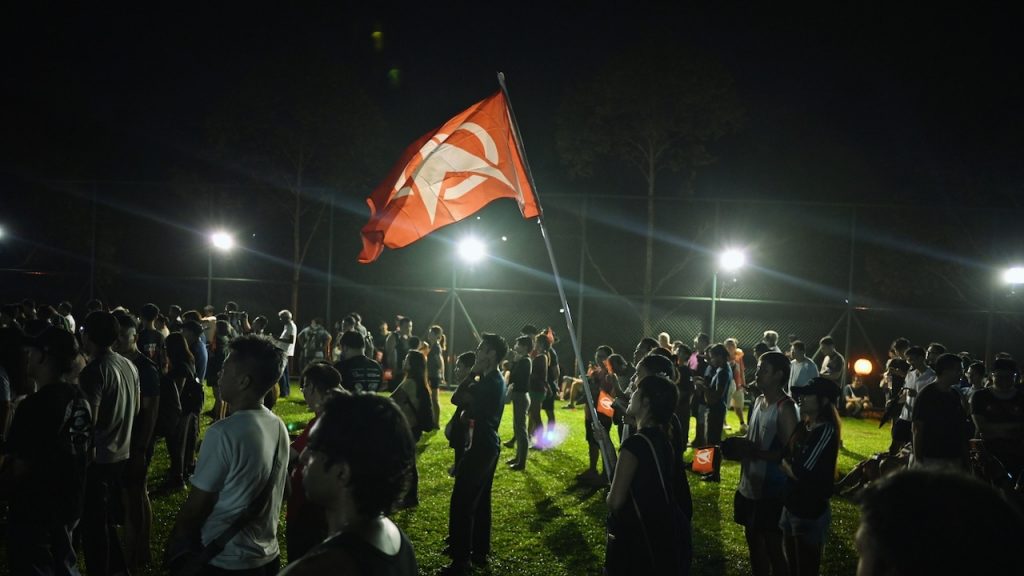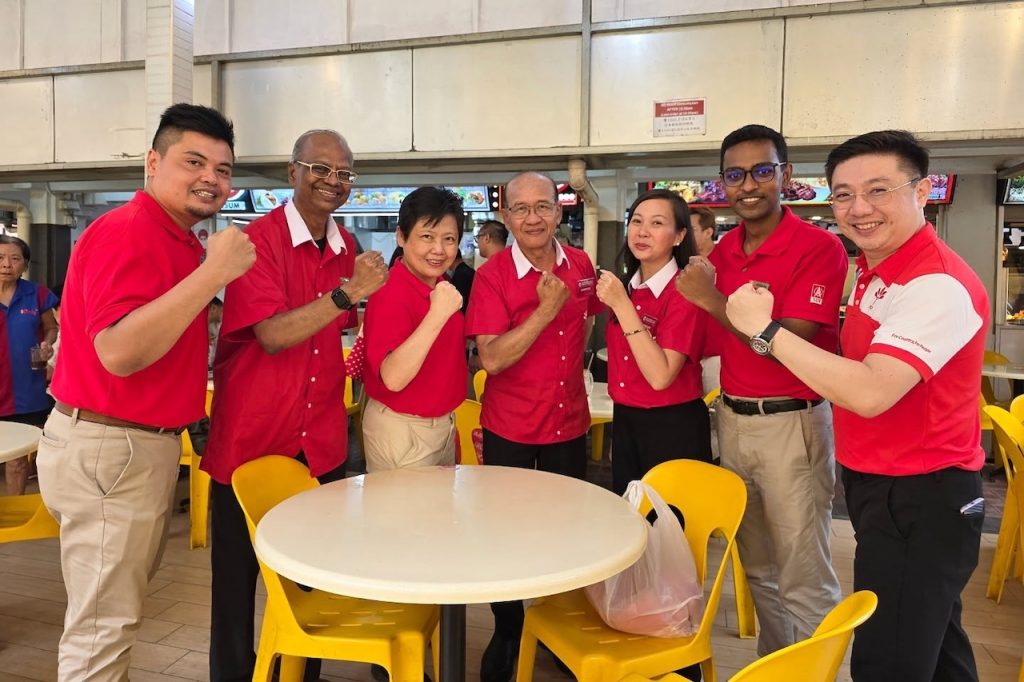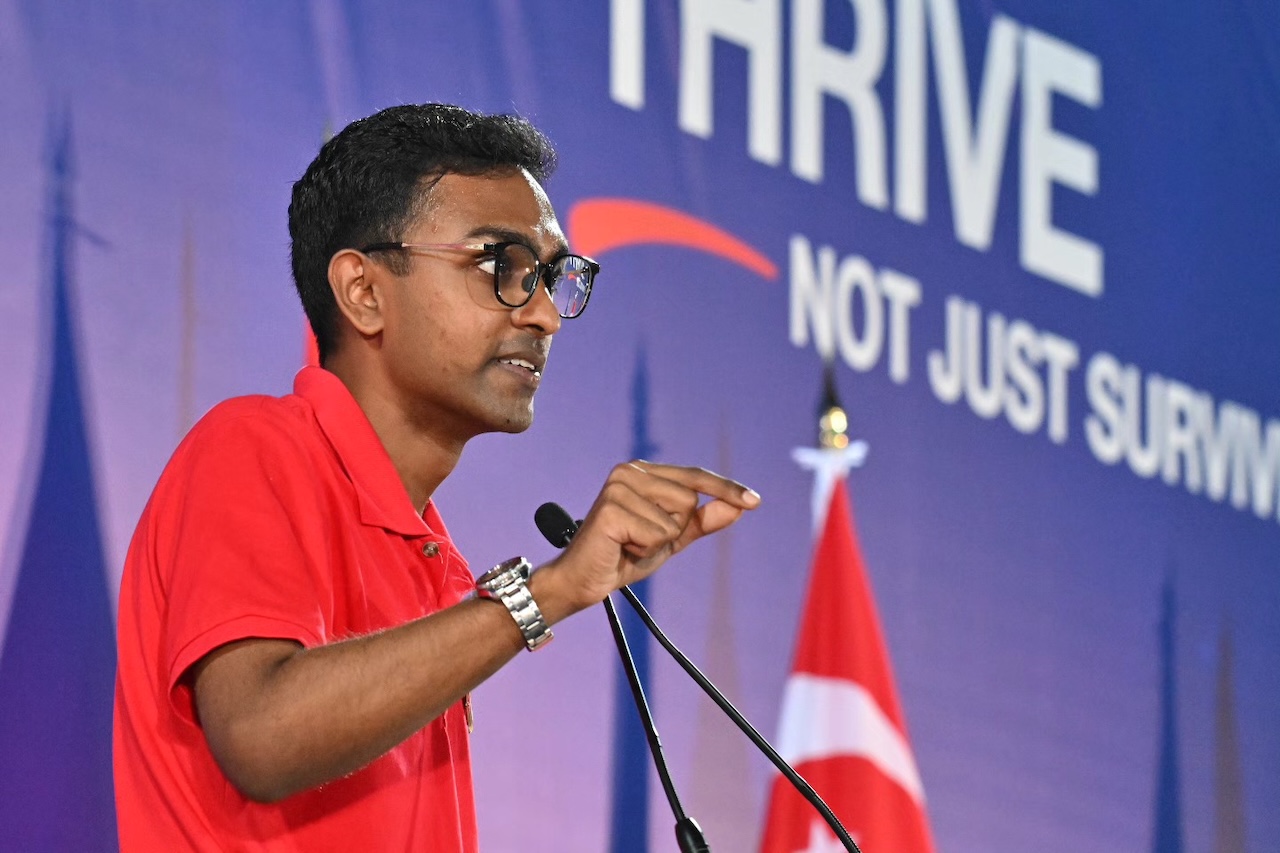RICE does not endorse any political party in Singapore. Refer to our GE2025 content coverage policy for details.
Top image: Ariffin Sha / Facebook
At this point, it really feels like Dr Chee Soon Juan is cursed. The Singapore Democratic Party (SDP) Secretary-General just can’t seem to catch a break—not since he first threw his hat into the electoral ring in 1992.
In just a few words—an off-the-cuff, jaw-dropping slur—SDP’s fragile momentum for GE2025 now teeters on collapse. A verbal misstep might have been survivable on the campaign trail, typically ending up as fodder for a Yeolo meme roundup. But this? This was a gut-punch.
ADVERTISEMENT
During a Hokkien speech at Evergreen Primary School on Apr 26, Gigene referred to Ariffin with a hurtful term used to describe those of Indian descent. Casually lobbing a racial slur at an Indian man—who also happens to be a fellow running mate—is indefensible.
You could see it on their faces last night at a rain-soaked rally in Sembawang. Dr Chee and SDP chairman Dr Paul Tambyah (also an Indian man) stood grim and heavy-eyed before the crowd, trying to steady a leaky ship. They soldiered through their speeches, but a bit of their usual fire had ebbed away, snuffed out by the sheer weight of it all.
And yet, it is Ariffin Sha who deserves our deepest empathy. Few can fathom what it’s like to be at such a unique but unfortunate position: to be the public victim of racism, aired live for the nation to see, during one of the most politically charged seasons in recent memory. And to be called that slur by none other than Gigene Wong, his teammate for Marsiling-Yew Tee GRC?
It was already a colossal task to take on the incumbent PAP team led by PM Lawrence Wong. Now, thanks to Gigene’s spectacular own-goal, it’s a near-impossible mission.
Still, with less than a week to Polling Day, Ariffin must walk the tightrope—denouncing racism (unintended as it may be) within his own ranks, apologising for the team, and somehow still rallying voters to their cause.
It is a brutal position for any candidate, let alone the 28-year-old founder of Wake Up Singapore—a platform that would have rightly torched any racist remarks, had they come from anywhere else. To make matters worse, as he stood addressing the crowd, someone yelled at him to “move on.”
Moving on is easy for those untouched by the blow. For Ariffin—and for all of us who are fatigued by moments such as these—it must never be.
Let’s Not Move On Yet
Credit where it’s due: Dr Chee did the right thing. He fronted up, owned the mistake as the party leader, and laid out exactly what the party did in response. “The buck stops with me,” he said grimly.
The SDP didn’t try to bury it either. They gave it time—real time—on stage. Gigene Wong was sternly counselled, and made multiple public apologies: to voters, to the party, and, most importantly, to Ariffin Sha.
For Gigene, the reality probably took a while to land. It’s only been a few days since she realised the term was more than just an innocuous Hokkien phrase—it was a racial slur, loaded and violent. You can see it in the evolution of her apologies. The first post felt almost flippant. The second was different: heavier, sobered by the weight of what she had done.

The party accepted that there was no malice behind her words. Maybe so. But when you’re asking to stand in Parliament—to speak for every Singaporean, not just the ones who look like you—you’d expect better judgment and decorum.
ADVERTISEMENT
And credit too to Ariffin. He didn’t equivocate or try to lessen the impact of his running mate. He stood his ground and spoke to what so many minorities have lived with for years in Singapore: the expectation to excuse such slurs as innocent mistakes. Because, indeed, there’s nothing casual about ‘casual racism‘.
The Cost of Moving On
That’s why it was so galling to hear Ariffin’s speech interrupted by a heckler demanding “let’s move on”.
Ariffin, in the middle of what must already be a nerve-wracking moment, must have had to wrestle with the desire to confront the heckler while risking creating bigger headlines if he got into it with an (allegedly inebriated) SDP rally attendee.
I’m not the first to think that “let’s move on” is such a trigger—a refrain that essentially tells us to simply get over something that felt like such a personal affront to our very being.
Because that’s exactly the instinct we’ve had to learn growing up: to minimise, to excuse, to sweep it under the rug and tell ourselves it’s not that serious. To move on with our lives as quickly and quietly as possible. If you’re a minority in Singapore, you know this script too well.
We’re told not to be ‘too sensitive’—sometimes even by our own. To give people the benefit of the doubt. To preserve the peace, even when it’s at the expense of our dignity.

So, yes, it’s particularly frustrating when Ariffin was given a rare chance to honestly speak up about the perennial issue of racism before a national audience, he’s loudly told to move past it. Told to be silent and compliant and focus on other issues, as if ethnic slights aren’t important enough.
No sir. I would prefer not to “just move on”. We sit in this. We stay uncomfortable. Unlearn the instinct to doubt our own experiences—to wonder if we are, in fact, overreacting, simply because of the refusal to bring difficult conversations of race, privilege, and ignorance to the fore. It is to the credit of SDP that they chose to confront their mistakes despite the political costs and spark important conversations.
Alas, the damage is done. The SDP team aren’t the only ones bearing the cost of this moment. The voters of Marsiling-Yew Tee GRC who hoped to hear alternative voices are now grappling with a painful choice: whether to stand by a team tainted by the very fault lines they hoped to heal, or to stick with the incumbent.
But this event isn’t just about votes or race. It exposes deeper instincts we’ve long learned to live with: the impulse to preserve appearances over truth, to paper over wounds in the name of harmony, to expect that those who are hurt must also be the ones to forgive quickly and quietly.
Because if we’re serious about building a more just, more equal Singapore, we can’t keep “moving on”. Not at the ballot box, and not in the quiet, daily work of confronting the hard truths that hold us back.







